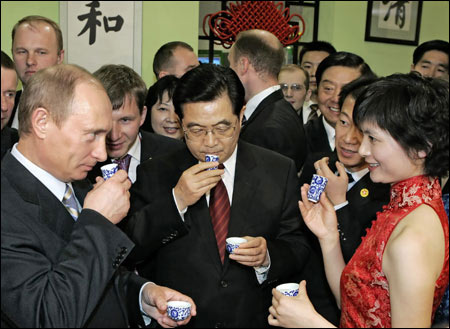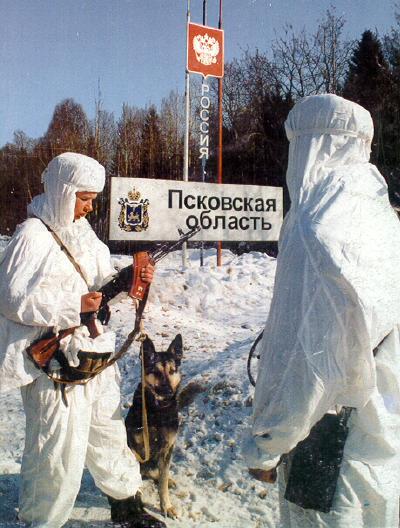Re: The Rise of the Russian Empire: Russo-Armenian Relations
The interesting choice of words by Putin will be ammunition for the "One World Order" conspiracy theorists.
Armenian
************************************************** *********

Relations between Russia and China have a strong impact on the formation of a just world order, Russian President Vladimir Putin said. "Russian-Chinese relations provide a vivid example of friendly and mutually beneficial cooperation, based on long-term, strategic interests. Russian-Chinese political, economic and humanitarian ties have been developing vigorously, bringing visible benefits to the Russian and Chinese peoples. Strong interaction between our two countries in the world arena is an important factor of building a just world order with due account taken of civilized political-economic diversity," Putin said in a message of greetings to Chinese President Hu Jintao, according to the Kremlin press service. "The success of the Year of China in Russia and the Year of Russia in China provides a vivid example of the two countries' shared wish to further develop mutual understanding and effective cooperation. The agreement you and I have reached to make the most successful events of the national years regular, will undoubtedly help deepen mutual trust and traditional friendship between our peoples," the Russian president said.
Source: http://www.chinadaily.com.cn/china/2...nt_6360345.htm
The interesting choice of words by Putin will be ammunition for the "One World Order" conspiracy theorists.
Armenian
************************************************** *********
Putin: Russia-China interaction helps build just world order

Relations between Russia and China have a strong impact on the formation of a just world order, Russian President Vladimir Putin said. "Russian-Chinese relations provide a vivid example of friendly and mutually beneficial cooperation, based on long-term, strategic interests. Russian-Chinese political, economic and humanitarian ties have been developing vigorously, bringing visible benefits to the Russian and Chinese peoples. Strong interaction between our two countries in the world arena is an important factor of building a just world order with due account taken of civilized political-economic diversity," Putin said in a message of greetings to Chinese President Hu Jintao, according to the Kremlin press service. "The success of the Year of China in Russia and the Year of Russia in China provides a vivid example of the two countries' shared wish to further develop mutual understanding and effective cooperation. The agreement you and I have reached to make the most successful events of the national years regular, will undoubtedly help deepen mutual trust and traditional friendship between our peoples," the Russian president said.
Source: http://www.chinadaily.com.cn/china/2...nt_6360345.htm








Comment